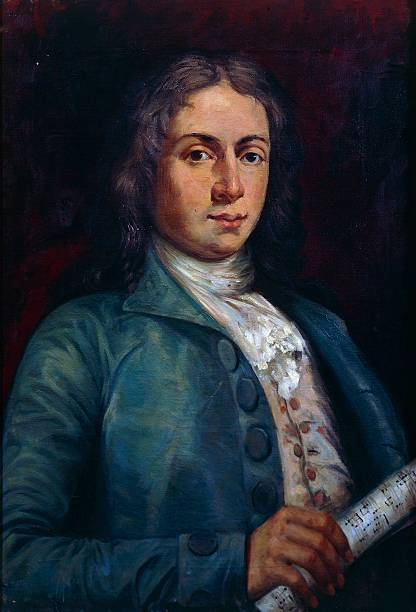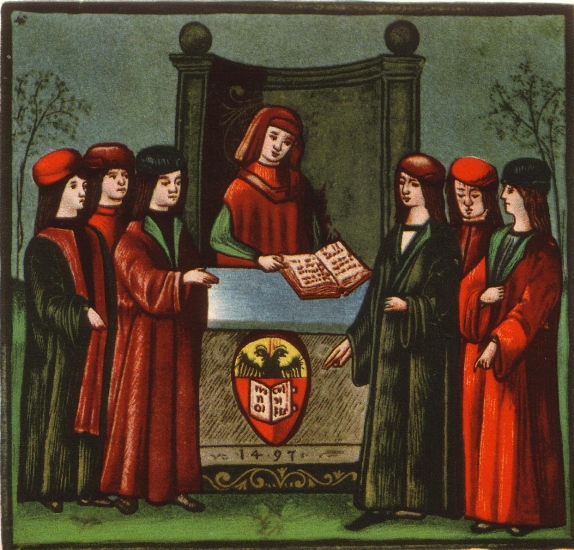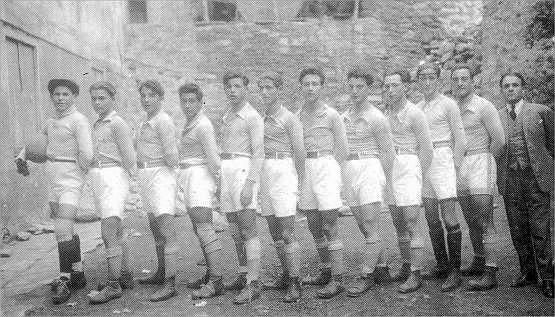|
Telemaco (Scarlatti)
''Telemaco, ossia L'isola di Circe'' is a 1718 opera by Alessandro Scarlatti to a libretto by Carlo Sigismondo Capece (sometimes spelled "Capeci"), court poet to Queen Maria Casimira of Poland, living in exile in Rome, for the Teatro Capranica in Rome, where it was premiered during the carnival season. The opera was revived in 2005 by the Schwetzingen Festival and the Deutsche Oper am Rhein. History The libretto was written by Carlo Sigismondo Capece, based on Homer's ''Odyssey'' and François Fénelon's didactic novel '' Les Aventures de Télémaque''. The librettist was regarded as one of the central authors in Rome at the turn to the 18th century. ''Telemaco'' is his last work for the stage. The plot is full of intrigues and complications around Telemachus, the son of Odysseus. Scarlatti composed it, as one of his last operas, for the 1718 carnival season. The composer wrote 114 operas. ''Telemaco'' is known for a richness in melodies, contrasting characters, and a colour ... [...More Info...] [...Related Items...] OR: [Wikipedia] [Google] [Baidu] |
Alessandro Scarlatti
Pietro Alessandro Gaspare Scarlatti (2 May 1660 – 22 October 1725) was an Italian Baroque composer, known especially for his operas and chamber cantatas. He is considered the most important representative of the Neapolitan school of opera. Nicknamed by his contemporaries "the Italian Orpheus", he divided his career between Naples and Rome, where he received his training; a significant part of his works was composed for the papal city. He is often considered the founder of the Neapolitan school, although he has only been its most illustrious representative: his contribution, his originality and his influence were essential, as well as lasting, both in Italy and in Europe. Particularly known for his operas, he brought the Italian dramatic tradition to its maximum development, begun by Monteverdi at the beginning of 17th century and continued by Cesti, Cavalli, Carissimi, Legrenzi and Stradella, designing the final form of the ''Da capo aria'', imitated throughout Europe. H ... [...More Info...] [...Related Items...] OR: [Wikipedia] [Google] [Baidu] |
Lukas Hemleb
Lukas Hemleb (born 1960 in Bad Homburg vor der Höhe) is a German director of plays and operas, scenic designer, and librettist. Career Born Lukas Hemmleb in Bad Homburg vor der Höhe, he was in Berlin assistant of Peter Stein, Klaus Michael Grüber and Luc Bondy, and worked in Italy with Luca Ronconi. His first own productions was in the 1990s at the ''Schauspielschule'' of the Théâtre national de Strasbourg and at the Schaubühne am Lehniner Platz. He staged at the Schauspielhaus Bochum and the Grillo-Theater in Essen, but also with performers from Cameroon and Nigeria. His stagings were shown at the Théâtre National de l’Odéon, the Comédie-Française and other theatres in France, and also in Lausanne, Antwerp), and in Vienna at the Burgtheater and the Theater an der Wien). He directed works by Shakespeare, Molière, contemporary authors, also stage versions of literature from Dante to Marina Tsvetaeva. He worked also as a librettist for musical stage works by Rei ... [...More Info...] [...Related Items...] OR: [Wikipedia] [Google] [Baidu] |
Operas By Alessandro Scarlatti
Opera is a form of theatre in which music is a fundamental component and dramatic roles are taken by singers. Such a "work" (the literal translation of the Italian word "opera") is typically a collaboration between a composer and a librettist and incorporates a number of the performing arts, such as acting, scenery, costume, and sometimes dance or ballet. The performance is typically given in an opera house, accompanied by an orchestra or smaller musical ensemble, which since the early 19th century has been led by a conductor. Although musical theatre is closely related to opera, the two are considered to be distinct from one another. Opera is a key part of the Western classical music tradition. Originally understood as an entirely sung piece, in contrast to a play with songs, opera has come to include numerous genres, including some that include spoken dialogue such as '' Singspiel'' and '' Opéra comique''. In traditional number opera, singers employ two styles of ... [...More Info...] [...Related Items...] OR: [Wikipedia] [Google] [Baidu] |
1718 Operas
Events January – March * January 7 – In India, Sufi rebel leader Shah Inayat Shaheed from Sindh who had led attacks against the Mughal Empire, is beheaded days after being tricked into meeting with the Mughals to discuss peace. * January 17 – Jeremias III reclaims his role as the Ecumenical Patriarch of Constantinople, chief leader within the Eastern Orthodox Church, 16 days after the Metropolitan Cyril IV of Pruoza had engineered an election to become the Patriarch. * February 14 – The reign of Victor Amadeus over the principality of Anhalt-Bernburg (now within the state of Saxony-Anhalt in northeastern Germany) ends after 61 years and 7 months. He had ascended the throne on September 22, 1656. He is succeeded by his son Karl Frederick. * February 21 – Manuel II (Mpanzu a Nimi) becomes the new monarch of the Kingdom of Kongo (located in western Africa at present day Angola) when King Pedro IV (Nusamu a Mvemba) dies after a reign ... [...More Info...] [...Related Items...] OR: [Wikipedia] [Google] [Baidu] |
Operas
Opera is a form of theatre in which music is a fundamental component and dramatic roles are taken by singers. Such a "work" (the literal translation of the Italian word "opera") is typically a collaboration between a composer and a librettist and incorporates a number of the performing arts, such as acting, scenery, costume, and sometimes dance or ballet. The performance is typically given in an opera house, accompanied by an orchestra or smaller musical ensemble, which since the early 19th century has been led by a conductor. Although musical theatre is closely related to opera, the two are considered to be distinct from one another. Opera is a key part of the Western classical music tradition. Originally understood as an entirely sung piece, in contrast to a play with songs, opera has come to include numerous genres, including some that include spoken dialogue such as ''Singspiel'' and ''Opéra comique''. In traditional number opera, singers employ two styles of singing: ... [...More Info...] [...Related Items...] OR: [Wikipedia] [Google] [Baidu] |
Elisabeth Kulman
Elisabeth Kulman (born 28 June 1973) is an Austrian classical singer who has performed operatic roles in soprano, mezzo-soprano and contralto repertory. She has appeared at opera houses in Vienna and internationally. She has performed early operas such as Legrenzi's ''Il Giustino'' as well as new works, creating the role of Gora in the premiere of Reimann's ''Medea'' at the Vienna State Opera. She recorded Lieder by Mussorgsky, Bach's ''Christmas Oratorio'' with Peter Schreier and Beethoven's ''Missa solemnis'' with Nikolaus Harnoncourt. From 2015, she has focused on concert singing. Career Born in Oberpullendorf, Kulman achieved the Matura in 1991. She studied Russian, and musicology. She was a choir singer in several notable choirs in Vienna, including Arnold Schoenberg Chor, Concentus Vocalis Wien, Wiener Singakademie, Wiener Kammerchor and . She began voice studies in 1995 at the Universität für Musik und darstellende Kunst Wien with Helena Lazarska. She completed her s ... [...More Info...] [...Related Items...] OR: [Wikipedia] [Google] [Baidu] |
University Of Bologna
The University of Bologna ( it, Alma Mater Studiorum – Università di Bologna, UNIBO) is a public research university in Bologna, Italy. Founded in 1088 by an organised guild of students (''studiorum''), it is the oldest university in continuous operation in the world, and the first degree-awarding institution of higher learning. At its foundation, the word ''universitas'' was first coined.Hunt Janin: "The university in medieval life, 1179–1499", McFarland, 2008, , p. 55f.de Ridder-Symoens, Hilde''A History of the University in Europe: Volume 1, Universities in the Middle Ages'' Cambridge University Press, 1992, , pp. 47–55 With over 90,000 students, it is the second largest university in Italy after La Sapienza in Rome. It was the first place of study to use the term ''universitas'' for the corporations of students and masters, which came to define the institution (especially its law school) located in Bologna. The university's emblem carries the motto, ''Alma Mater Studio ... [...More Info...] [...Related Items...] OR: [Wikipedia] [Google] [Baidu] |
Daniela Barcellona
Daniela Barcellona (born 28 March 1969) is an Italian operatic mezzo-soprano. Biography Barcellona was born in Trieste, where she completed her musical studies under the guidance of Alessandro Vitiello, pianist and conductor. She married Vitiello in 1998 and continued to work with him on a professional level. Barcellona won the “Adriano Belli” award in Spoleto, the “ Iris Adami Corradetti” award in Padua, and the “Pavarotti International Voice Competition” in Philadelphia. She debuted in the title role of ''Tancredi'' at the Rossini Opera Festival in Pesaro in 1999, establishing herself as a reference interpreter for “en travesti” roles. In the early 2000s, Barcellona performed at New York's Metropolitan Opera, La Scala in Milan, the Royal Opera House in London, the Théâtre des Champs-Élysées in Paris, the Bayerische Staatsoper in Munich, the Teatro Real in Madrid, the Salzburg Festival and the Gran Teatre del Liceu in Barcelona. She and Joyce DiDonato ... [...More Info...] [...Related Items...] OR: [Wikipedia] [Google] [Baidu] |
Antonio Florio
Antonio Florio (born 1956 in Bari, Italy) is an Italian conductor, musicologist and composer.Antonio Florio - Cavalli à la napolitaine, Opéra International, 2004 He studied under Nino Rota Giovanni Rota Rinaldi (; 3 December 1911 – 10 April 1979), better known as Nino Rota (), was an Italian composer, pianist, conductor and academic who is best known for his film scores, notably for the films of Federico Fellini and Luchino Visco ..., and founded the Cappella della Pietà de' Turchini in 1987 and in 2016 the Cappella Neapolitana. References 1956 births Living people People from Bari Italian male conductors (music) Italian musicologists Italian composers 21st-century Italian conductors (music) 21st-century Italian male musicians {{Italy-music-bio-stub ... [...More Info...] [...Related Items...] OR: [Wikipedia] [Google] [Baidu] |
I Turchini
Sporting Club Bastiais ( co, Sporting Club di Bastia, commonly referred to as SC Bastia or simply Bastia) is a Corsican association football club based in Bastia on the island of Corsica. The club plays in Ligue 2, the second tier of French football, having won the 2020–21 Championnat National. The club plays its home matches at the Stade Armand Cesari located within the city. Bastia's main historical success include reaching the final of the 1977–78 edition of the UEFA Cup. The team was defeated by Dutch club PSV Eindhoven (0–0 at home, 0–3 away). Domestically, Bastia won the second division of French football in 1968 and 2012, and the Coupe de France in 1981. During the club's infancy, it was league champions of the "Corsican League" 17 times. They are the local rivals of Ajaccio and contest the Derby Corse. The club has signed several famous players in its history, notably including Dragan Džajić, Claude Papi, Johnny Rep, Roger Milla, Michael Essien, Alex Song, S ... [...More Info...] [...Related Items...] OR: [Wikipedia] [Google] [Baidu] |
Roberta Invernizzi
Roberta Invernizzi (born 1966, in Milan) is an Italian soprano. She originally studied piano and double bass before turning to singing. She specialises in early music from the baroque and classical period of music. She has sung in many operas in Italy, wider Europe and the US and has made over 60 recordings. Her recording of Handel's ''Cantate per il Cardinal Pamphili'' won the 2007 Stanley Sadie Handel Recording Prize. In January 1999 she was invited by Gustav Leonhardt to sing in the inaugural concert of the New York Collegium. Invernizzi currently teaches singing at the Centro di Musica Antica in Naples. Discography * Boccherini: "Stabat Mater" (Roberta Invernizzi, L'Archiburdelli, Anner Bylsma) Sony Vivarte 2003 * Handel: ''Le Cantate per il Cardinal Pamphili'' (Roberta Invernizzi, La Risonanza, Fabio Bonizzoni) Glossa Music 2006 *Handel: ''Rodrigo'' (Gloria Banditelli, Sandrine Piau, Elena Cecchi Fedi, Rufus Müller, Roberta Invernizzi, Caterina Calvi; Il Comples ... [...More Info...] [...Related Items...] OR: [Wikipedia] [Google] [Baidu] |
Baroque Instruments
Musical instruments used in Baroque music were partly used already before, partly are still in use today, but with no technology. The movement to perform music in a historically informed way, trying to recreate the sound of the period, led to the use of historic instruments of the period and to the reconstruction of instruments. The following table lists instruments, classified as brass instruments, woodwinds, strings, and basso continuo. The continuous bass is played by a group of instruments, depending on the given situation. Many instruments have an Italian or French name which is used as a common name also in English. The use of instruments by composers is shown in examples mostly by Johann Sebastian Bach. Table of instruments Baroque instrumentation The typical orchestra of the Baroque period is based on string instruments (violin, viola) and continuo. A continuous bass is the rule in Baroque music; its absence is worth mentioning and has a reason, such as describi ... [...More Info...] [...Related Items...] OR: [Wikipedia] [Google] [Baidu] |







